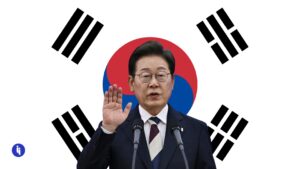Briefly: Brazil’s central bank (BCB) continues to keep interest rates high despite a new economic survey forecasting cooler inflation in the country. In response, Brazil’s President Luiz Inácio Lula da Silva has criticised the BCB chief for months.
The BCB has pursued an aggressive monetary policy in recent years, hiking rates earlier and harder than other central banks around the world. This has helped tame inflation, but it’s put parts of the Brazilian economy under strain:
- 📈 Bankruptcies have spiked 34.1% this year
- 💸 Household debt hit record highs last year, and
- 🐢 GDP growth is forecast at around half the world average
So since taking office this year, President Lula has said the BCB chief:
Stay on top of your world from inside your inbox.
Subscribe for free today and receive way much more insights.
Trusted by 129,000+ subscribers
No spam. No noise. Unsubscribe any time.
- “has no commitment to Brazil”
- is holding back Brazil’s economic growth, and
- is loyal to the previous right-leaning president that appointed him.
For his part, the BCB chief says everyone wants lower rates, but spiralling prices would be much worse, particularly in a country with a history of hyperinflation.
Intrigue’s take: Central bank independence is a key feature of modern democracies, allowing technocrats the freedom to make unpopular but necessary economic decisions.
Brazil’s strong institutions offer good reasons to be bullish on its future. But the country only formalised its central bank’s autonomy in 2021, and markets are getting nervous Lula might try to pack its board with loyalists.
Just ask Turkey where that road can lead.
Also worth noting:
- Markets in Brazil, Chile, Colombia and Mexico are expecting rates to start falling before the end of this year.
- The central bank’s chief and all its board members will complete their terms during Lula’s presidency. Lula will then appoint their replacements.
- Brazil’s central bank hiked rates several times last year, before Lula’s election victory.








